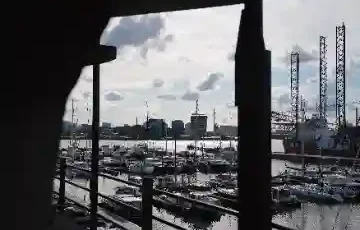
Greenwashing under Dutch law constitutes misleading sustainability claims. These claims present products, services, or corporate activities as more environmentally friendly than they actually are. This practice represents a growing legal liability for companies operating in the Netherlands. Recent enforcement developments and landmark litigation in Amsterdam courts have intensified scrutiny.
What Constitutes Greenwashing Under Netherlands Jurisdiction?
Greenwashing encompasses any commercial communication that exaggerates ecological benefits. This applies to products or business activities according to Dutch consumer protection law. Organizations that claim to operate more sustainably than reality demonstrates create misleading representations. These fall under Articles 6:193b through 6:193d of the Dutch Civil Code. These provisions prohibit unfair commercial practices. Greenwashing is specifically categorized as misleading communication under Netherlands legislation.
ACM Statistics on Misleading Claims
The Netherlands Authority for Consumers and Markets (ACM) has determined critical findings. Approximately 42% of examined sustainability claims in Dutch retail are potentially misleading. Consequently, the regulator tightened its guidelines in June 2023. The guidelines establish five concrete rules that businesses must follow when conducting green marketing. These standards align with European regulations and Dutch case law protecting consumers.
Three Primary Categories of Greenwashing
Moreover, the ACM distinguishes three primary greenwashing categories. First, product attributes represent by far the largest group. Second, corporate climate commitments without adequate policy frameworks. Third, overstating investments in sustainable initiatives. Particularly the first category stands at the center of enforcement actions. These actions occur in Amsterdam and other Netherlands courts.
Risks for International Corporations
International corporations with operations in the Netherlands face heightened scrutiny. Therefore, understanding Dutch legal requirements becomes essential for multinational businesses. A lawyer in the Netherlands specializing in consumer protection can help navigate these complex waters. ESG compliance expertise proves invaluable for foreign companies marketing sustainability credentials within Netherlands jurisdiction.
Which Five Rules Does the ACM Mandate for Sustainability Claims?
The ACM guidelines from June 2023 contain concrete standards. Your organization must comply with these when operating under Dutch law. First: sustainability claims must be correct, clear, specific, and complete. The overall impression of your advertisement must remain factually accurate and precise.
Substantiation Requirements
Additionally, the regulator requires businesses to substantiate their assertions with facts. Keep claims current at all times. Specific claims require explanation and verifiable evidence. This evidence must come from independent sources. Documentation proves essential for compliance.
Fair Comparisons and Statistics
Furthermore, comparisons with other products or competitors must be fair. Comparative claims can assist consumers effectively. They clarify what benefits your product offers versus alternatives. However, these comparisons must not cause confusion. Approximately 38% of comparative sustainability claims contain insufficient substantiation. This data comes from recent ACM analyses of the Netherlands market.
Future Ambitions and Visual Claims
A fourth rule concerns future sustainability ambitions. Describe these in concrete and verifiable terms. Use claims about future goals for marketing purposes only when you possess a clear plan. Ultimately, visual claims and labels must benefit consumers, not confuse them. Illustrations require a direct, verifiable link with the sustainability benefit. Independent labels are preferred over private certifications.
International Business Example
German Manufacturing Case: A German manufacturing subsidiary operating in Amsterdam advertised products as “climate neutral.” The claim was based on carbon offset purchases. However, the company failed to disclose critical information. The offsets represented voluntary credits without third-party verification. Following ACM intervention, the manufacturer faced enforcement action. The company was compelled to withdraw all marketing materials.
The case cost approximately €340,000. This included legal fees, ACM penalties, and fixing the problem. Reputational damage across European markets added further costs. This illustrates how Dutch legal requirements exceed many other European jurisdictions. The stringency and enforcement in the Netherlands remain unparalleled.
How Does Self-Regulation Relate to Public Enforcement in the Netherlands?
The Dutch Advertising Code Committee (RCC) functions as a self-regulatory body. It decides disputes between companies and consumers. Decisions are based on the Netherlands Advertising Code. However, the ACM and RCC maintain a cooperation protocol. Consumers should lodge greenwashing complaints with the RCC first. The ACM then initiates investigations if necessary. This dual-track structure substantially strengthens enforcement capacity.
ACM Enforcement Powers
Nevertheless, the ACM possesses substantial instruments. These apply when organizations ignore RCC rulings. They also apply in cases with serious circumstances. Particularly, the regulator can impose fines. It can issue orders subject to penalty payments. Various investigatory powers remain at the ACM’s disposal. Statistics show significant trends. RCC cases concerning greenwashing have increased by over 170% since 2020. Businesses struggle to find the appropriate tone in sustainability communication.
Substantiation Requirements in RCC Rulings
Moreover, RCC case law reveals important patterns. Most rulings finding greenwashing revolve around inadequate substantiation. Missing evidence for advertising claims represents the primary issue. Therefore, a Dutch lawyer specializing in consumer protection offers critical guidance. International businesses should conduct legal assessments for ACM compliance before launching campaigns. This preventive approach avoids costly enforcement procedures. It also prevents reputational damage.
Importance for Foreign Companies
For foreign companies, understanding the Netherlands legal system’s mechanisms proves crucial. The RCC operates independently but carries significant weight. ACM enforcement often follows RCC determinations. Consequently, international businesses cannot dismiss RCC proceedings as merely voluntary. They represent the first line of Dutch legal scrutiny for sustainability claims.
What Made the KLM Case Groundbreaking for Dutch Greenwashing Law?
On 20 March 2024, the Amsterdam District Court rendered a landmark judgment. Foundation Fossil Free (Fossielvrij) brought a class action against Royal Dutch Airlines (KLM). A class action under Dutch law is a judicial procedure. An interest organization represents a group of affected parties. In this instance, consumers were misled by KLM’s “Fly Responsibly” campaign. Claims included “be a hero, fly CO2ZERO” and “CO2 neutral.”
Court Findings Against KLM
The Amsterdam court ruled decisively. Fifteen of 19 contested advertisements were misleading. Therefore they were unlawful under Netherlands consumer protection law. Specifically, the judgment stated that KLM had exaggerated impacts. The positive impact of sustainable aviation fuels was overstated. Reforestation programs were similarly misrepresented. Thus, the airline created a false sustainability impression. This contradicted the actual environmental impact of flying.
Legal Implications and Future Requirements
KLM had already ceased the contested campaigns. The court therefore did not impose an injunction or rectification order. However, the judgment explicitly determined future requirements. Sustainability claims must be truthful, substantiated, and accurate. This ruling followed an earlier RCC decision of 8 April 2022. That decision similarly deemed KLM’s marketing misleading. Fossielvrij used that RCC determination as the foundation for civil proceedings.
WAMCA and Collective Actions
Consequently, the KLM case illustrates important legal developments. The Dutch Act on Redress for Mass Damages in a Collective Action (WAMCA) became effective in 2020. It created fertile ground for greenwashing litigation. This legislation introduced the possibility for interest organizations to claim monetary compensation. It explicitly permits cases serving the “public interest.” Approximately 60% of WAMCA cases since 2020 involve ESG-related claims. Greenwashing represents the largest category under Netherlands jurisdiction.
Strategic Considerations for International Businesses
International businesses should note critical procedural differences. Dutch civil procedure allows for collective actions with lower thresholds. These thresholds are lower than many common law jurisdictions. Therefore, companies operating in the Netherlands face heightened class action exposure. This exposure exceeds other European markets. Engaging a lawyer in the Netherlands with WAMCA experience becomes essential. This applies particularly to multinational corporations with significant Dutch market presence.
Which Recent Enforcement Actions Has the ACM Undertaken in Retail?
Around the same period as the KLM judgment, the ACM took action. Multiple retail chains faced scrutiny for misleading sustainability claims. Additionally, the regulator concluded commitment decisions with major brands. These settlement agreements involved fashion retailers Decathlon and H&M. Energy suppliers Vattenfall and Greenchoice also participated. These organizations used various advertisements to promote sustainability efforts. However, the evidentiary basis remained unclear.
H&M Label Controversy
H&M employed the label “conscious choice” without adequate explanation. The company did not specify why particular garments were more conscious. It failed to detail what sustainability benefits products offered. This vagueness falls under the ACM’s definition of misleading conduct. Consumers cannot make informed choices without concrete information. Dutch law requires details about environmental impact, production conditions, and material sourcing.
Albert Heijn Case Details
Particularly the Albert Heijn case attracted attention. The retailer claimed to be “the most sustainable supermarket in the Netherlands.” However, sufficient evidence was lacking. Following ACM engagement, Albert Heijn withdrew the entire advertising campaign. The company removed all misleading claims from its communications. This example demonstrates vulnerability even for market leaders. Enforcement actions occur when sustainability claims lack adequate substantiation.
ACM Enforcement Patterns Since 2023
In summary, ACM enforcement practice since 2023 demonstrates a clear shift. The approach moved toward proactive intervention rather than reactive penalty imposition. However, organizations that do not cooperate voluntarily risk substantial financial sanctions. ACM fines can reach €900,000 per violation. Alternatively, penalties may equal 10% of annual turnover. This depends on severity and scope of the misleading conduct. International companies should recognize important distinctions. Dutch enforcement exceeds many other European jurisdictions in both frequency and financial impact.
Risk Assessment for Foreign Businesses
For foreign businesses, these enforcement patterns signal critical information. The Netherlands represents a high-risk jurisdiction for greenwashing. Moreover, ACM decisions often influence regulatory approaches across the European Union. Dutch compliance serves as a bellwether for broader European standards. Does your organization’s sustainability marketing comply with Dutch legal requirements?
Why Is ESG Litigation Increasing Exponentially in the Netherlands?
The past three years have witnessed dramatic growth. A 215% increase in ESG-related disputes was registered with the Dutch Bar Association. Greenwashing constitutes the most common category. This surge correlates with heightened societal awareness. Tightened regulations contribute significantly. Expanded opportunities for collective action under WAMCA accelerate the trend. Consumers and interest organizations no longer hesitate. They initiate proceedings at the RCC or in Netherlands civil courts.
Expansion Beyond Environmental Claims
Subsequently, legal specialists expect misleading claims will expand. The focus will shift from exclusively ecological aspects. Social and governance dimensions of ESG will receive increased attention. Social washing concerns misleading statements about human rights. Supply chain labor conditions represent another focus area. Diversity policies also fall within this category. Blue washing focuses on false representations. These concern ESG integration into corporate governance structures under Dutch law.
Current Distribution of ESG Cases
Nevertheless, the environmental component remains dominant in Netherlands case law. Research from the University of Amsterdam shows clear patterns. Between 2022-2024, approximately 78% of ESG proceedings concerned greenwashing claims. Only 14% involved social washing. Governance issues represented 8% of cases. This distribution will likely shift as new legislation takes effect. The Corporate Sustainability Due Diligence Directive (CSDDD) undergoes implementation. The Corporate Sustainability Reporting Directive (CSRD) follows similar timelines in the Netherlands.
Green Claims Directive Impact
Furthermore, the Green Claims Directive plays a crucial role. Future enforcement under Dutch law will intensify. This European directive faces implementation into Netherlands legislation by 2026. It establishes strict requirements for substantiation and verification. Companies must then provide scientifically substantiated evidence before making sustainability claims. This represents a substantial tightening compared to current Dutch practice.
Strategic Implications for Multinationals
International businesses operating in the Netherlands should prepare accordingly. The combination creates a challenging compliance landscape. Stringent ACM enforcement continues. WAMCA proceedings proliferate. Incoming EU directives add further complexity. This requires specialized Dutch legal expertise. Consequently, retaining a lawyer in the Netherlands with ESG litigation experience proves essential. This represents not merely prudent risk management. It constitutes operational necessity for multinational corporations.
How Can Your Organization Protect Against Greenwashing Liability Under Dutch Law?
Prevention begins with thorough legal counsel. Obtain advice before your organization launches sustainability campaigns in the Netherlands. A Netherlands-qualified lawyer specializing in consumer protection offers essential guidance. Contract law expertise proves equally valuable. Legal counsel can assess ACM guidelines against your marketing strategy. RCC case law requires careful analysis.
Documentation and Substantiation
Additionally, provide all sustainability claims with verifiable sources. Specific measurement criteria prove essential. Transparent reporting about progress under Dutch law remains mandatory. Moreover, your compliance department should regularly establish audit trails. These demonstrate how specific claims are substantiated. Preserve scientific reports carefully. Independent verifications carry significant weight. Internal policy documents supporting green marketing must remain accessible. Approximately 65% of successful defenses rely on pre-established documentation. This proves the legitimacy of statements under Netherlands jurisdiction.
Visual Elements and Certifications
Furthermore, Amsterdam-based lawyers advise critically evaluating visuals and symbols. A green leaf or earth image suggests sustainability. Ensure these visuals maintain a direct, demonstrable relationship with concrete performance. Prefer recognized, independent certifications. Avoid self-created labels that may confuse consumers under Dutch consumer protection law.
Practical Compliance Framework
Compliance Steps for Dutch Law:
- Have Netherlands legal specialists assess your marketing materials against ACM guidelines
- Document all assertions with independent, verifiable sources recognized under Dutch law
- Specify percentages, timelines, and measurement methods instead of vague terms
- Use recognized certifications and avoid self-created sustainability labels
- Set up internal review procedures for all ESG communications in Netherlands markets
- Monitor RCC case law and ACM enforcement actions in your sector
- Consider insurance coverage for ESG-related liability under Netherlands jurisdiction
Transparency as Legal Protection
Ultimately, transparency and specificity form your best legal protection under Dutch law. Vague terms constitute red flags for Netherlands regulators. Terms such as “sustainable,” “green,” or “environmentally friendly” require concrete context. Replace these with measurable statements. Examples include “25% CO2 reduction compared to 2020” or “100% FSC-certified wood in product line X.”
Strategic Value of Dutch Compliance
International businesses should recognize important distinctions. Dutch legal standards often exceed requirements in other jurisdictions. Therefore, compliance with Netherlands law frequently satisfies requirements across European markets. This makes Dutch legal counsel strategically valuable. It benefits broader European operations. Has your organization engaged a lawyer in the Netherlands to assess greenwashing exposure?
What Are the Financial and Reputational Risks of Greenwashing in the Netherlands?
Greenwashing liability under Dutch law manifests across three levels. First, administrative sanctions. Second, civil damages claims. Third, reputational harm. The ACM can impose fines up to €900,000 per violation. However, the regulator may calculate based on 10% of relevant annual turnover. This applies in serious cases. Additionally, orders subject to penalty payments can accumulate significantly. Amounts reach €100,000 per day that an organization fails to comply. This applies to ACM directives under Netherlands law.
Civil Liability and WAMCA Exposure
Civil liability brings substantial risks through collective actions. WAMCA proceedings remain relatively new in the Netherlands. Nevertheless, international precedents demonstrate significant potential exposure. Damage awards can reach tens of millions of euros. This occurs when large consumer groups suffer harm. Particularly reputational damage proves the heaviest sanction. Research from Erasmus University Rotterdam shows clear patterns. Companies experience an average 32% brand value loss over two years. This follows confirmed greenwashing claims in Netherlands markets.
Insurance Coverage Limitations
Nevertheless, insurers remain cautious with coverage for ESG-related liability. Traditional Directors & Officers (D&O) policies often provide limited protection. Greenwashing claims frequently fall outside standard coverage. This applies particularly when intentional misleading conduct is established. Approximately 40% of Netherlands D&O policies explicitly exclude ESG claims. Meanwhile, 35% provide coverage only for unintentional violations.
Capital Market Implications
Moreover, greenwashing litigation affects access to capital markets. This impacts companies operating in the Netherlands. Institutional investors apply ESG criteria increasingly strictly. Proven misleading sustainability claims lead to downgrading. Exclusion from investment portfolios follows. For publicly traded companies with Netherlands operations, consequences prove severe. Significant share price declines occur. Limited financing opportunities result.
Extraterritorial Consequences
International businesses should recognize broader implications. Dutch legal exposure carries effects beyond national borders. Netherlands court judgments often influence regulatory approaches across European Union member states. Consequently, greenwashing liability in Amsterdam can trigger cascading consequences. Reputational damage spreads throughout European markets. Regulatory scrutiny intensifies wherever your organization operates.
What Role Do Dutch Lawyers Play in Greenwashing Prevention and Defense?
Netherlands-qualified lawyers specializing in consumer protection fulfill crucial roles. ESG compliance expertise proves equally valuable. These professionals assist with both prevention and defense against greenwashing claims. Prior to marketing campaigns, they can assess ACM compliance. They analyze RCC case law thoroughly. Potential legal risk points under Dutch law become identified. This preventive approach saves organizations substantial costs. Average savings reach 85% compared to reactive defense. This applies following enforcement actions in the Netherlands.
Early Intervention Benefits
Additionally, legal experts can mediate effectively. They work between your organization and the ACM. Interest organizations also participate in these discussions. Early intervention proves valuable when proceedings threaten. In approximately 55% of cases, this approach results in commitment decisions. These avoid formal fines under Netherlands law. Publicity remains limited. This avoids reputational damage. Financial consequences become substantially limited.
Holistic Regulatory Knowledge
Furthermore, lawyers with ESG specialization possess comprehensive knowledge. Related regulations require attention beyond ACM guidelines. CSRD implementation continues. CSDDD rollout proceeds. The forthcoming Green Claims Directive requires preparation. Implementation in Dutch law demands attention. This complete approach ensures your sustainability communication complies with current requirements. It also anticipates future European standards in Netherlands jurisdiction.
Procedural Expertise for Multinationals
A lawyer in the Netherlands brings additional value through procedural familiarity. Dutch civil procedure differs substantially from common law systems. The Netherlands employs a civil law framework. Specific evidentiary standards apply. Burden of proof allocations follow distinct patterns. Procedural timelines differ significantly. Foreign legal departments may not fully comprehend these distinctions. Consequently, early engagement with Amsterdam-based legal counsel prevents costly errors.
Strategic Necessity
In summary, legal guidance for sustainability communication under Dutch law proves essential. This constitutes not luxury but necessity. The current enforcement climate demands specialized expertise. The combination of factors creates challenges. Intensified ACM supervision continues. WAMCA proceedings increase. Heightened societal vigilance persists. This creates a legal environment difficult to navigate without specialized Netherlands legal expertise. Does your organization have access to a Dutch lawyer with ESG litigation experience?
How Do Netherlands Standards Relate to European Greenwashing Regulation?
Netherlands greenwashing enforcement leads within Europe. However, harmonization through EU directives increases steadily. The Green Claims Directive undergoes negotiation. The European Parliament and Council discuss implementation details. This directive codifies many principles the ACM already enforces. Implementation occurs under Dutch law. The directive requires businesses to verify environmental claims independently. Verification must occur before marketing begins. This represents a significant tightening. Current self-certification practices in many European jurisdictions will change.
UCPD Amendments and Dutch Implementation
Moreover, the Unfair Commercial Practices Directive (UCPD) introduces amendments. These specifically target sustainability claims. From 2024 onward, vague claims without substantiation become explicitly prohibited. Misleading sustainability labels face bans. Concealment of planned obsolescence becomes illegal across the European Union. The Netherlands implemented these standards early. ACM guidelines already enforce these requirements. Dutch businesses must already comply with standards that become mandatory elsewhere only from 2026.
CSRD Impact on Disclosure
Subsequently, CSRD plays an indirect but substantial role. This applies to companies operating in the Netherlands. The reporting obligation compels large businesses to provide detailed ESG disclosure. Discrepancies between reported and communicated sustainability performance create legal risks. These risks arise under Dutch law. Approximately 3,200 Netherlands-based companies fall under CSRD reporting obligations. Implementation occurs from 2025-2028. Timing depends on company size.
Anticipating Regulatory Trajectory
Thus, organizations operating in the Netherlands must anticipate developments. The regulatory landscape only becomes more stringent. The combination creates compliance challenges. National ACM enforcement intensifies. European harmonization efforts accelerate. This results in requirements demanding specialized legal expertise across multiple dimensions. International businesses benefit from engaging a lawyer in the Netherlands. This professional monitors both Dutch regulatory developments and incoming European directives. These affect Netherlands jurisdiction directly.
Strategic Value of Dutch Legal Precedents
Foreign companies should recognize strategic implications. Dutch legal precedents often influence broader developments. European Court of Justice interpretations frequently reference Netherlands case law. Regulatory approaches across member states follow Dutch patterns. Therefore, compliance with Netherlands law frequently anticipates broader European standards. This makes Dutch legal counsel strategically valuable. Multinational sustainability strategies benefit significantly. Will your organization’s ESG communications withstand scrutiny under both current Dutch law and forthcoming European regulations?
What Should International Businesses Know About Dutch Greenwashing Class Actions?
The Netherlands offers one of Europe’s most accessible collective action regimes. WAMCA provides the legal framework. Unlike many European jurisdictions, Dutch law permits interest organizations significant powers. They can pursue monetary compensation on behalf of affected consumers. Individual opt-in participation is not required. This “opt-out” structure substantially increases potential exposure. Companies operating in Netherlands markets face significant risks.
Jurisdictional Reach for Foreign Companies
International businesses face particular vulnerability. Dutch courts have demonstrated willingness to accept jurisdiction over foreign companies. Sufficient Netherlands market presence triggers this jurisdiction. Therefore, a multinational corporation without physical Netherlands operations may still face liability. This occurs if products or services reach Dutch consumers. Marketing activities directed at Netherlands markets create exposure.
Public Interest Litigation Under WAMCA
Moreover, WAMCA cases can proceed as “public interest” litigation. Admissibility requirements are relaxed for claims serving important purposes. The KLM judgment exemplifies this approach perfectly. Fossielvrij did not seek monetary compensation. Rather, the organization sought declaratory relief. This established the unlawfulness of sustainability claims. Nevertheless, such declarations create substantial consequences. Reputational harm results. Regulatory exposure increases for defendant companies.
Procedural Speed in Dutch Courts
Dutch civil procedure also permits relatively swift proceedings. This contrasts with many European jurisdictions. Summary judgment procedures (kort geding) can produce binding determinations rapidly. Timeframes reach as short as several weeks. Full merits proceedings typically conclude within 12-18 months. Consequently, companies facing greenwashing allegations in the Netherlands must respond rapidly. Qualified legal counsel becomes immediately necessary.
Strategic Response Requirements
A lawyer in the Netherlands experienced with WAMCA litigation understands unique considerations. Procedural requirements demand specific expertise. Strategic approaches differ from other jurisdictions. Early assessment of potential collective action exposure proves crucial. Proactive engagement with interest organizations can prove beneficial. Strategic use of settlement mechanisms substantially mitigates consequences. Both financial and reputational impacts under Dutch law can be limited through proper legal guidance.
Conclusion with regard to greenwashing issues under Dutch law
Greenwashing under Dutch law has evolved dramatically. What began as a reputational risk now constitutes substantial legal liability. Financial consequences prove severe. Strategic implications affect entire organizations. International businesses face particular challenges. The recent KLM judgment demonstrates judicial willingness to scrutinize sustainability claims. Intensified ACM enforcement continues. WAMCA proceedings grow exponentially. These developments demonstrate clearly that misleading sustainability claims are no longer tolerated in Netherlands jurisdiction.
Organizations operating in Amsterdam face specific requirements. Those throughout the Netherlands must comply with stringent standards. Broader European markets increasingly follow Dutch precedents. Companies must critically evaluate their marketing communications. ACM guidelines provide clear standards. RCC case law offers additional guidance. Incoming EU regulations require preparation. Implementation occurs under Dutch law.
Preventive legal assessment by Netherlands-qualified lawyers offers essential protection. Rigorous documentation of sustainability claims proves crucial. Transparent communication forms your best defense. This protects against cost-intensive proceedings. It prevents reputational damage effectively.
ESG litigation expands beyond traditional greenwashing. Social washing receives increased attention. Blue washing emerges as a concern. Proactive compliance with Dutch legal standards becomes increasingly crucial. Business continuity depends on proper compliance. Stakeholder confidence requires demonstrated commitment. The Netherlands legal system combines robust enforcement mechanisms with accessible collective action procedures. Sophisticated regulatory oversight creates a high-stakes environment. This requires specialized legal expertise.
LAwyers in Amsterdam specialized in greenwashing
Does your organization need legal counsel regarding sustainability communications? Greenwashing prevention under Dutch law requires specialized expertise. Contact a Netherlands-qualified lawyer specializing in ESG compliance today. Obtain a complete risk assessment of your current marketing strategy. Evaluate sustainability communications in Netherlands markets professionally.









